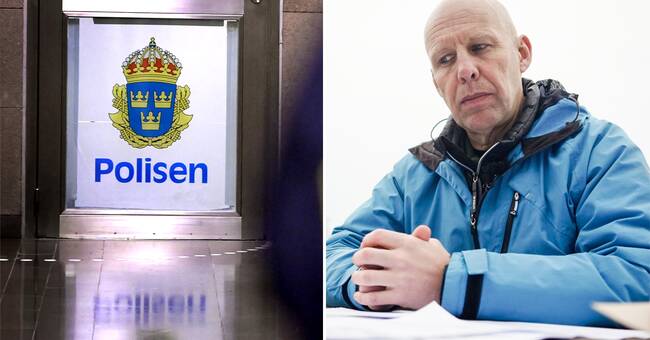Holgersson has interviewed police and journalists, and gone through hundreds of cases where journalists have requested documents.
He concludes that the police delay and keep secret much more than they should, which often becomes apparent when the confidentiality assessments are tried by a court.
According to Holgersson, the problems can be explained by lack of knowledge - but also by the fact that you want to darken to avoid criticism.
Among other things, there are "informal tips" on how to make information disclosure more difficult.
A concrete case, in which Holgersson himself tested the principle of openness, grew into an entire appendix to the report.
This applies to a senior manager who has profiled himself both internally and in the media, and where Holgersson has received tips that the person has exaggerated his own merits.
He tried to request information to verify the allegations - but was met with reluctance.
- I requested a certificate of commenced police training, which the boss claims to have passed.
In response from the Police Authority, I was told that "it can be assumed that the police's operational activities will be harmed".
It feels strange.
Instead of saying that the boss did not attend the police training, they want to do everything so as not to have to disclose anything that reveals it.
"Protects trademark"
At the same time, he obtained documents from other sources, which strengthened the thesis that the boss exaggerated his merits.
According to the documents, the manager's previous job had not had the weight and scope stated by the manager himself.
- This was not meant to be something for my study, but it became very interesting considering how the Police Authority did everything to protect a statement by a senior manager.
Both the designated chief and the Police Authority's management have declined to be interviewed.
The police's press manager Per Ek sends a written comment in which he writes that the authority does not share "most of the conclusions drawn in the study, for example that there would be an interest in obscuring, hiding and making transparency difficult".
He admits that there are shortcomings in the handling of disclosures of public documents, but states that several measures are now being taken to remedy the shortcomings.
Regarding the designated chief, the press chief rejects the police investigator's accusations, and writes that the handling of the researcher's request for information is based on secrecy legislation.
According to Per Ek, the information that the boss has completed a police training does not come from the boss himself but from a journalist who portrayed the boss.
Do you know more? Contact SVT's reviewing reporters.

